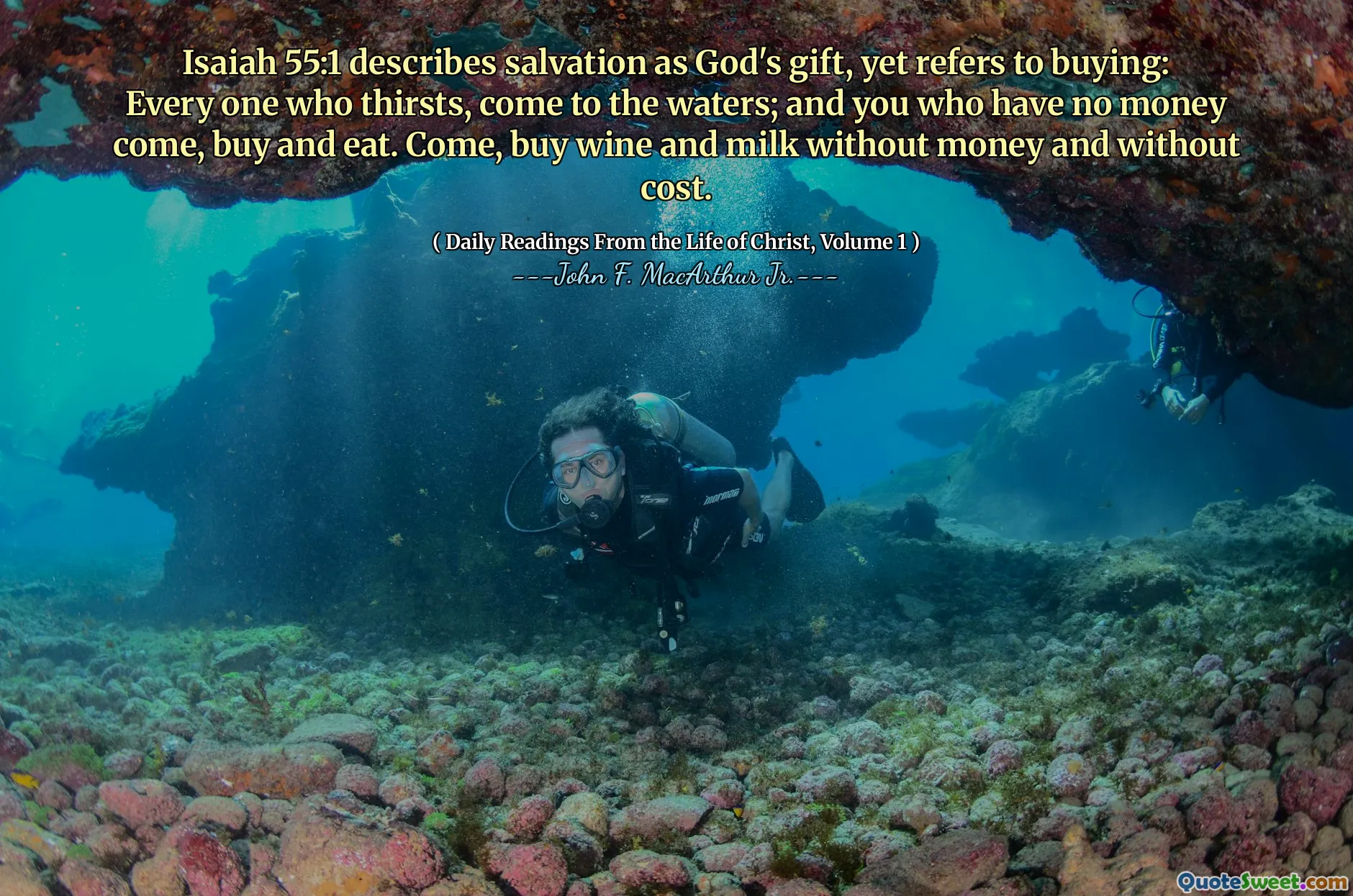
Isaiah 55:1 describes salvation as God's gift, yet refers to buying: Every one who thirsts, come to the waters; and you who have no money come, buy and eat. Come, buy wine and milk without money and without cost.
This verse from Isaiah beautifully encapsulates the universal offer of God's salvation, emphasizing that it is a gracious gift available freely to all who seek it. The imagery of thirst and the invitation to come to the waters vividly depict the human longing for fulfillment and spiritual nourishment. Despite the language of buying and paying, the verse clarifies that these goods—wine, milk, and waters—are provided without cost, highlighting the unmerited nature of divine grace. It challenges the common perception that all valuable things must be earned through effort or payment, instead demonstrating that God's blessings are accessible purely out of His mercy. This message is profoundly reassuring; it underscores the idea that salvation is not contingent on human merit or works but is an open invitation rooted in God's love. The concept invites believers and skeptics alike to approach God willingly, acknowledging their spiritual thirst and recognizing that true fulfillment comes from accepting His free gift. Such a perspective fosters humility and gratitude, encouraging a response rooted in faith rather than in attempts to earn favor. The verse also emphasizes inclusivity—no matter a person's financial situation or spiritual state, everyone is invited to partake without barriers. Ultimately, it’s an invitation to partake in God's abundant grace, experiencing the satisfying and life-giving nature of His provision. It reminds us constantly of the lavish generosity of God, who offers salvation cheaply and freely to all, urging a response of trust and surrender to His loving provision.






